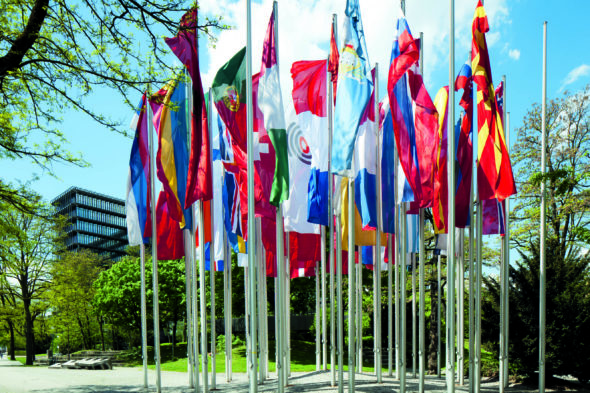
Voting is now open for the European Inventor Award 2018 Popular Prize. Members of the public are invited to cast their vote for their favourite inventor or inventor team from among the 15 nominated finalists (play short video). The winner of the Popular Prize will be announced by the European Patent Office (EPO) at this year’s Award ceremony in Paris, Saint-Germain-en-Laye on 7 June. The ceremony, honouring outstanding inventors from Europe and around the world, will be broadcast live on the EPO’s Innovation TV app and Facebook page.
The European Inventor Award is presented annually by the EPO in recognition of exceptional inventors whose inventions have improved the lives of people around the world. While the winners of the Award’s five categories – Industry, Research, Non-EPO countries, Small and medium-sized enterprises (SMEs), and Lifetime achievement – are selected by an international jury of innovation experts, the public alone decides who will receive the Popular Prize during the Award ceremony.
Voting is easy: An online vote open to everyone runs until 3 June at https://popular-prize.epo.org/. All 15 finalists and their inventions are showcased on the EPO website for the public to pick their favourite. All participating voters will also be entered into a draw, giving them the chance to win an innovative technology gadget: This year, voters can win one of 25 I Lock IT smart bicycle locks operated via low-energy Bluetooth technology. One vote can be cast every 24 hours until the closing date.
This year’s finalists –come from 13 countries: Brazil, Canada, Denmark, France, Germany, Ireland, the Netherlands, Poland, Russia, Sweden, Switzerland, the UK and the US. They include six women inventors – four of whom are lead inventors – making this year the strongest for women inventors since the European Inventor Award was launched in 2006.
15 outstanding inventors and teams contending for the Popular Prize
In the Industry category, the European Inventor Award 2018 finalists in the running cover such diverse areas as semiconductors, building toys, and transportation: Dutch engineer Erik Loopstra and Dutch-Russian physicist Vadim Banine and team invented a next-generation microchip manufacturing technology; a Danish team including Gaute Munch and Erik Hansen created programmable LEGO® robot construction kits; and French experts Agnès Poulbot and Jacques Barraud† developed self-regenerating tyres for heavy vehicles.
In the category Research, contenders for the Popular Prize have made an impact on medical diagnostics, restorative medicine, and biochemistry: German biophysicist Jens Frahm has made pioneering contributions that brought magnetic resonance imaging (MRI) into clinical practice; the British husband-and-wife research team Eileen Ingham and John Fisher CBE invented “biological scaffolds” that have improved patient outcomes in regenerative medicine; and a Polish team including Jacek Jemielity, Joanna Kowalska, and Edward Darżynkiewicz created stable messenger ribonucleic acid (mRNA) compounds, opening up new approaches to treating cancer.
In the Non-EPO countries category, the finalists vying for the public’s vote have improved the state of the art in clean energy generation, augmented reality technology, and management of heart disease: Stephen Dewar (Canada), Philip Watts (US/Canada) and Frank Fish (US) patented efficient wind turbine blades inspired by whales; Brazilian inventor and software engineer Alex Kipman developed “mixed-reality” data glasses known as the Microsoft HoloLens; and US chemical engineer and inventor Esther Sans Takeuchi perfected long-lasting compact batteries that power tiny implantable cardiac defibrillators (ICDs).
In the Small and medium-sized enterprises (SMEs) category, the candidates have pioneered water-conserving showers, multi-purpose adhesives, and next-generation synthetic fibres: Swedish industrial designer Mehrdad Mahdjoubi invented a resource-conserving closed-loop shower originally developed for NASA’s space programme; Irish product designer Jane ní Dhulchaointigh and her team formulated multi-purpose glue that can repair and customise everyday objects; and German biochemist Thomas Scheibel developed a new fibre based on ultra-strong artificial spider silk.
And finally, in the Lifetime achievement category, the finalists are: Swiss physicist Ursula Keller, who has developed the leading technology behind ultra-fast lasers in numerous industrial and medical applications; prolific French inventor and entrepreneur Jacques Lewiner, who has hundreds of inventions to his name including smoke alarms, medical sensors, and internet connections; and Danish wind power pioneer Henrik Stiesdal, who has built a legacy of contributions to wind turbine blade design and green energy.
More information about the Popular Prize is available at:
https://popular-prize.epo.org/